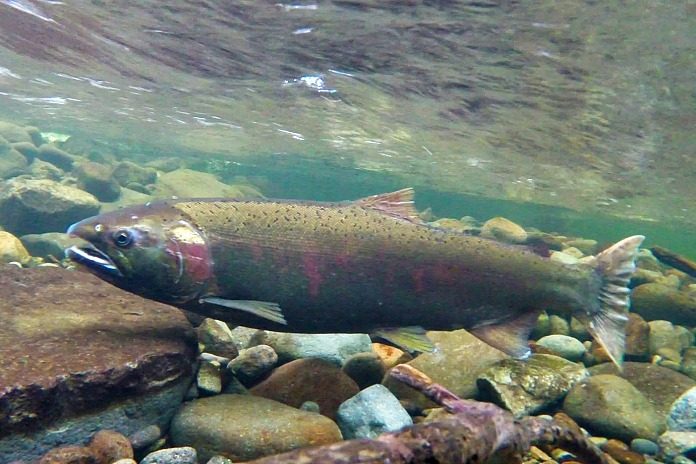
Facing some of the lowest steelhead returns on record, the Oregon Department of Fish and Wildlife has already curtailed steelhead fishing seasons throughout the Columbia River basin by adopting rolling season closures, reduced bag limits, and a night angling closure for all species.
Additionally, ODFW is asking anglers to further help the region’s steelhead by adopting ODFW’s best handling practices when they’re out on the water this summer.
“Positive voluntary efforts may reduce the necessity for future mandatory regulations,” said Tucker Jones, ODFW’s manager of Ocean Salmon and Columbia River fisheries. “If a person happens to intercept a wild steelhead, or any steelhead during a retention closure period for that matter, it is imperative that they do their utmost to ensure its survival by using best handling practices.”
ODFW lists best handling practices on Page 13 of the 2017 Oregon Sport Fishing Regulations. These practices include:
- Use barbless hooks (even where not required)
- Use tackle strong enough to bring your fish in quickly
- Land fish as quickly and carefully as possible
- Avoid removing the fish from the water
- If taking a photo, cradle the fish at water level and quickly take the picture
- Remove hooks quickly and gently while keeping the fish under water
- Use long-nosed pliers or hemostats to back out a hook
- If a fish is hooked deeply, cut the line near the hook
- Revive fish (point them into slow current or move them back and forth until gills are working)
- When possible, let the fish swim out of your hands
- Fish when it’s cool out – likely early in the morning or late in the afternoon – fishing is better and stress on fish is less.
Upriver summer steelhead forecasts are very low this year at approximately 119,000, compared to 5- and 10-year average actual returns of 236,000 and 315,000, respectively. Wild upriver summer steelhead forecasts are low as well, with a forecast return of just 34,000 fish versus the 5- and 10-year average actual returns of 87,000 and 105,000, respectively. Snake River wild “B” steelhead returns are the most imperiled, with a forecast of just 1,100 fish.
With returns of steelhead so low, another strategy is to not target them and focus on other species, including warmwater species such as bass, walleye, and pikeminnow. These species are not only fun to catch but they also prey on juvenile steelhead and salmon.










